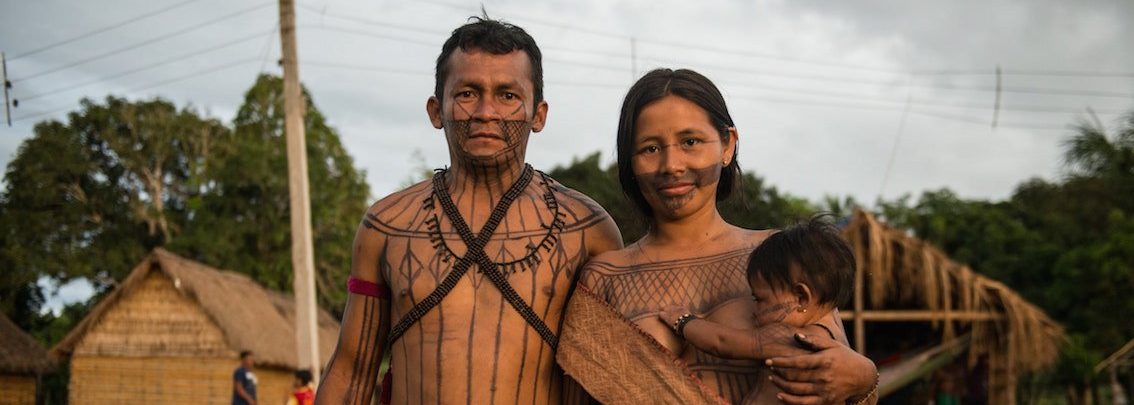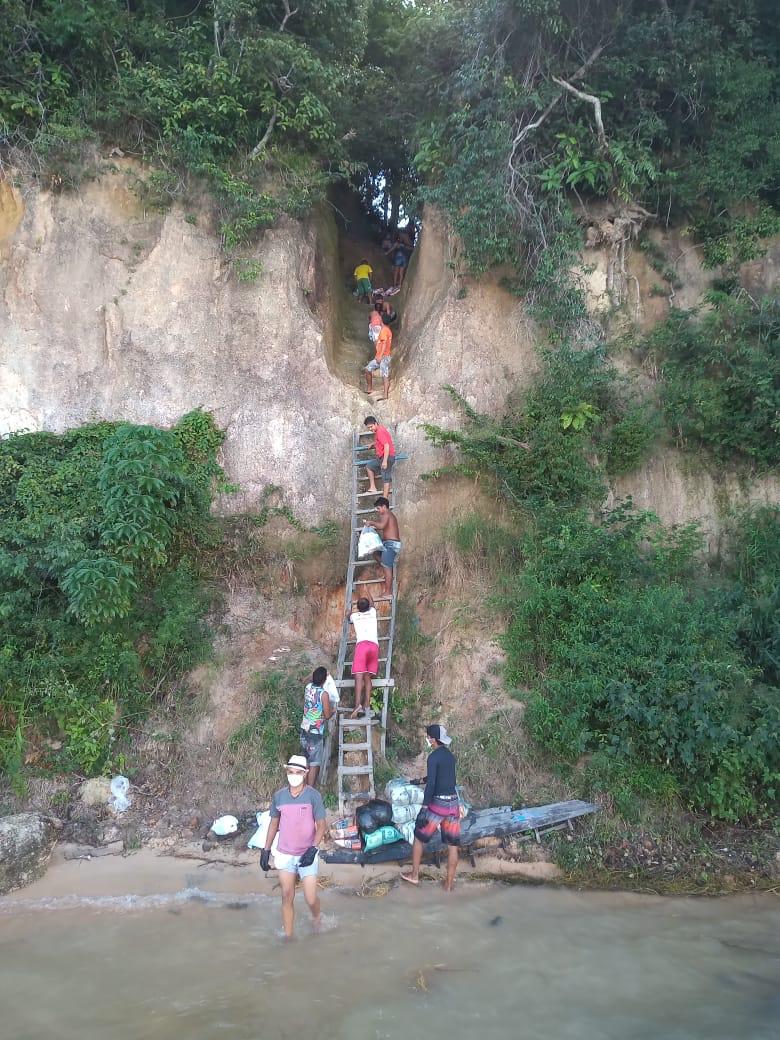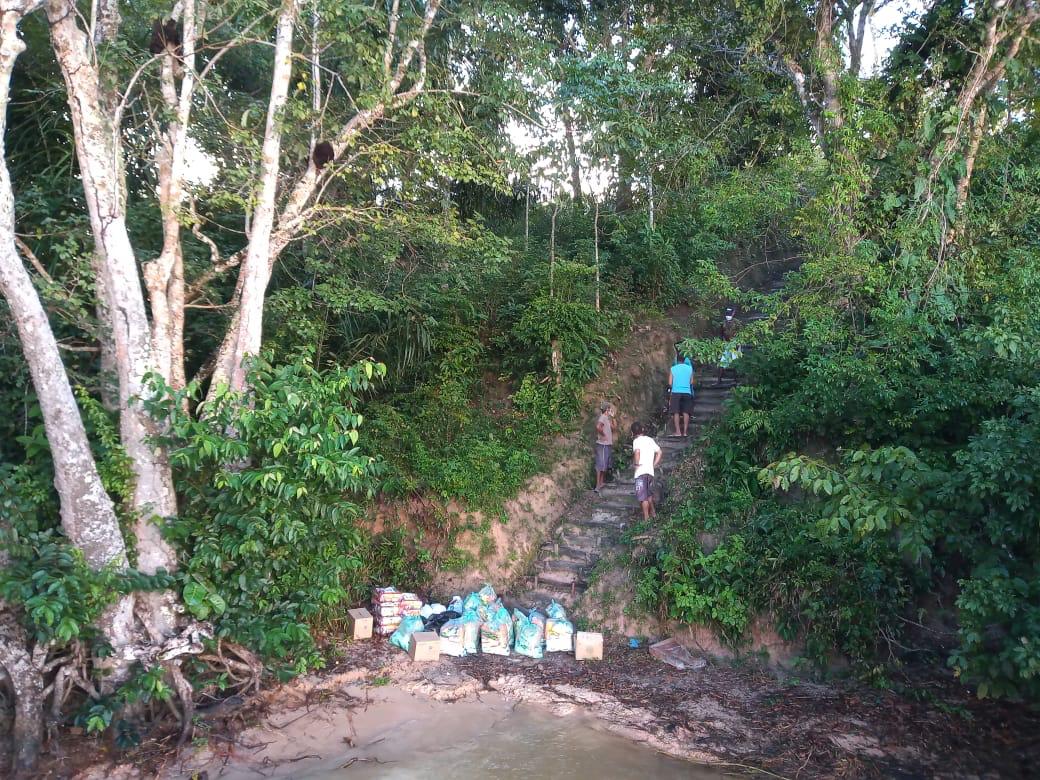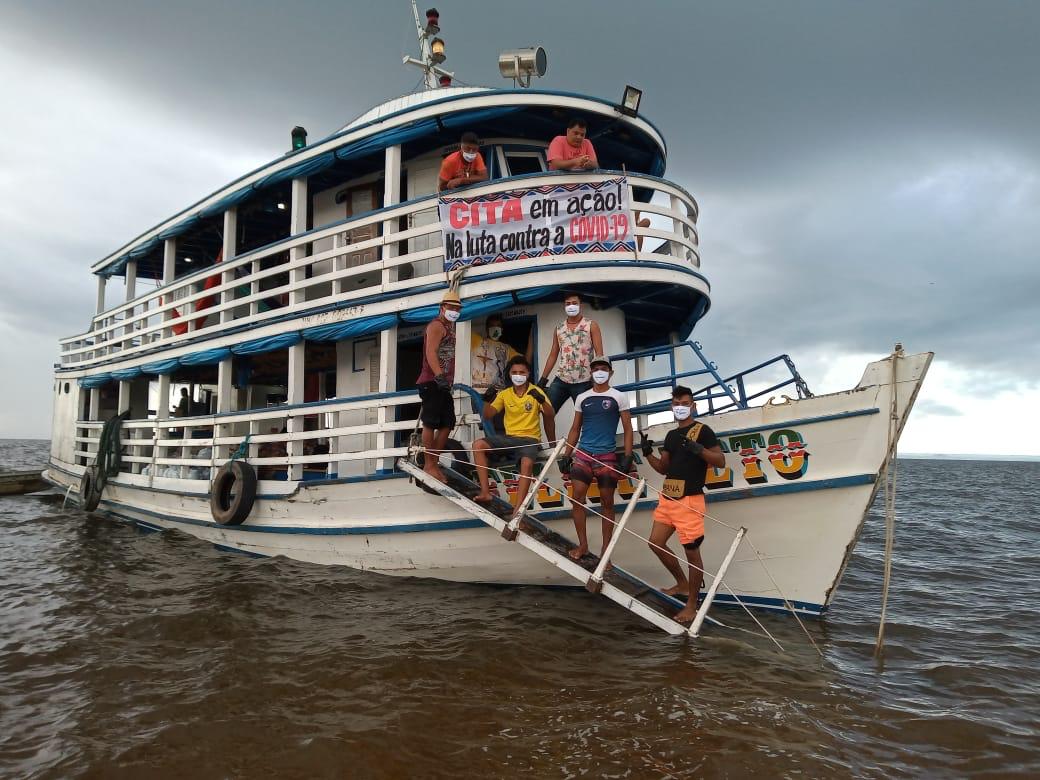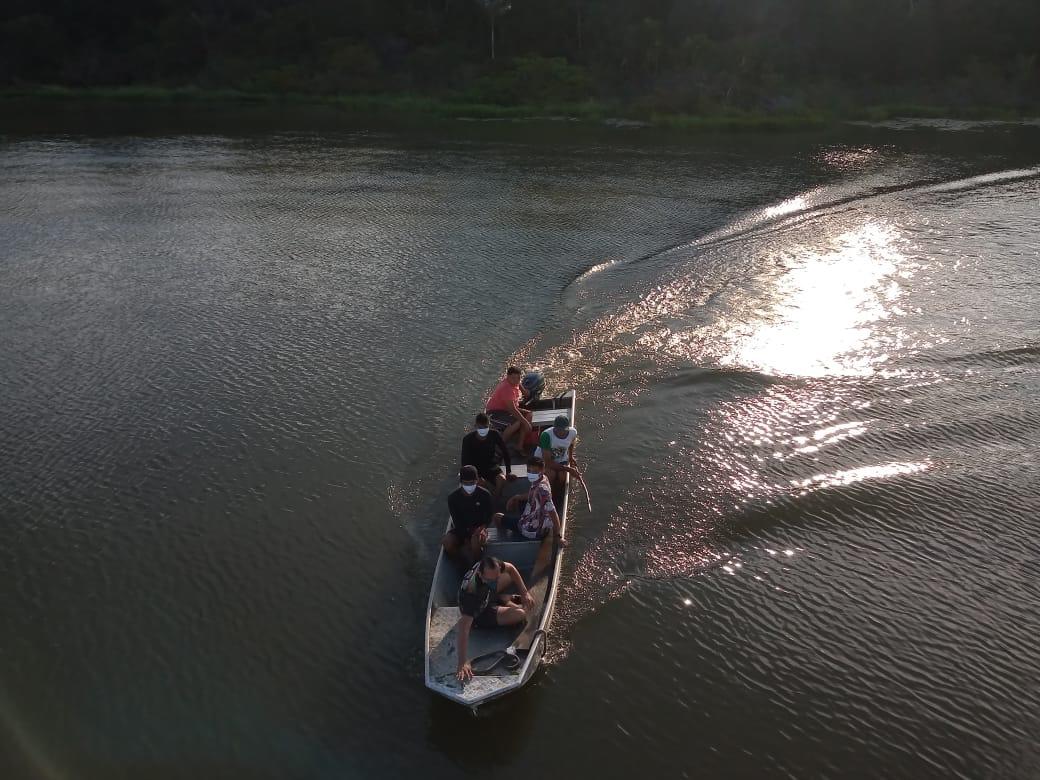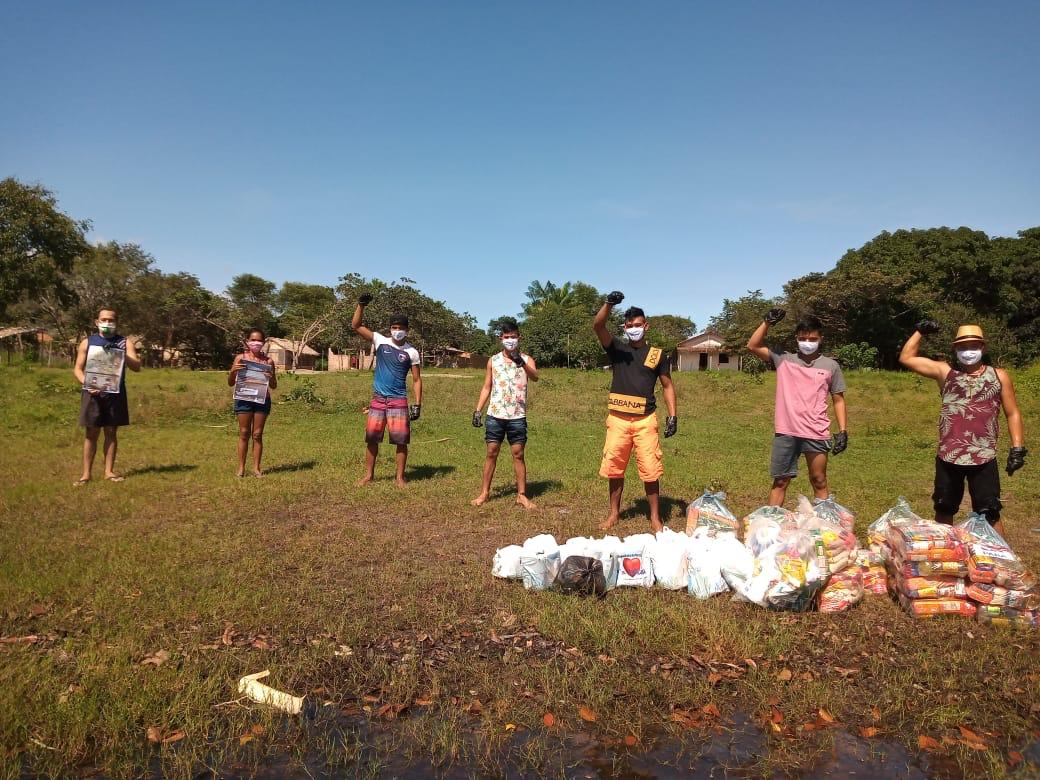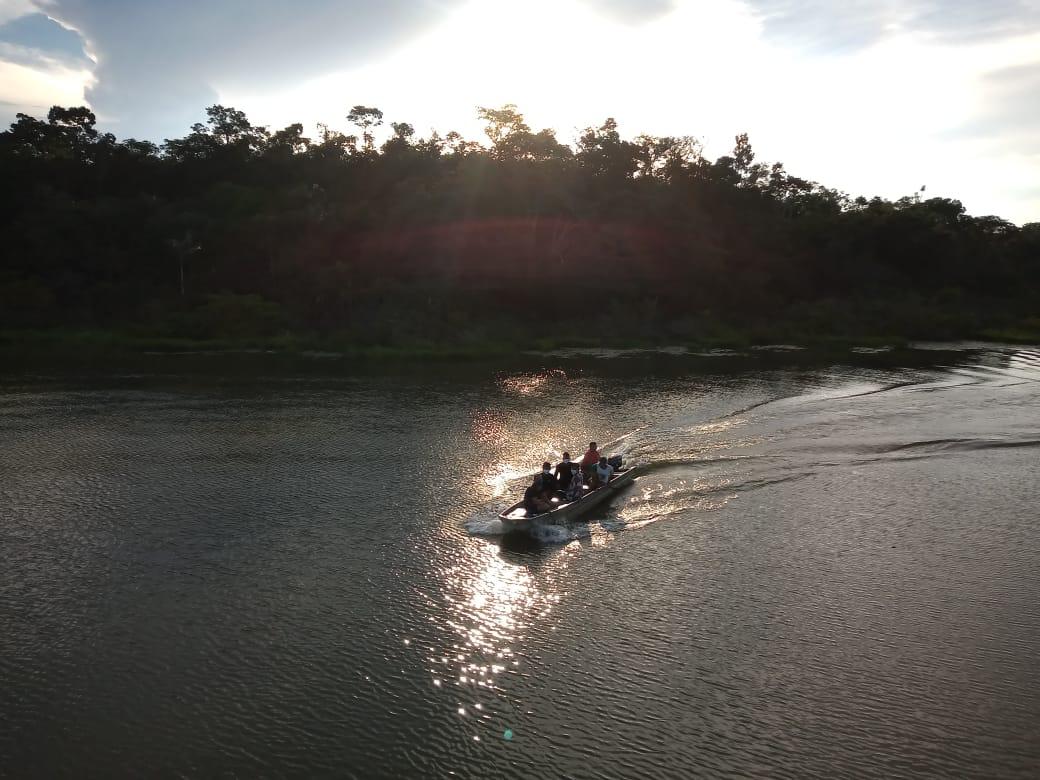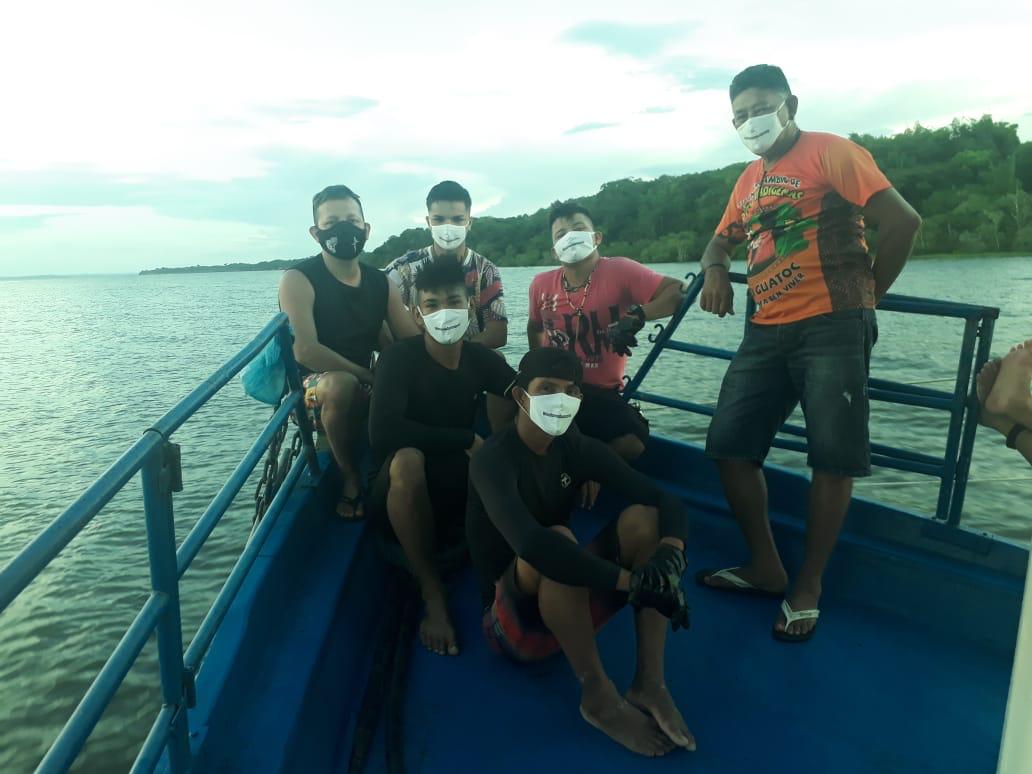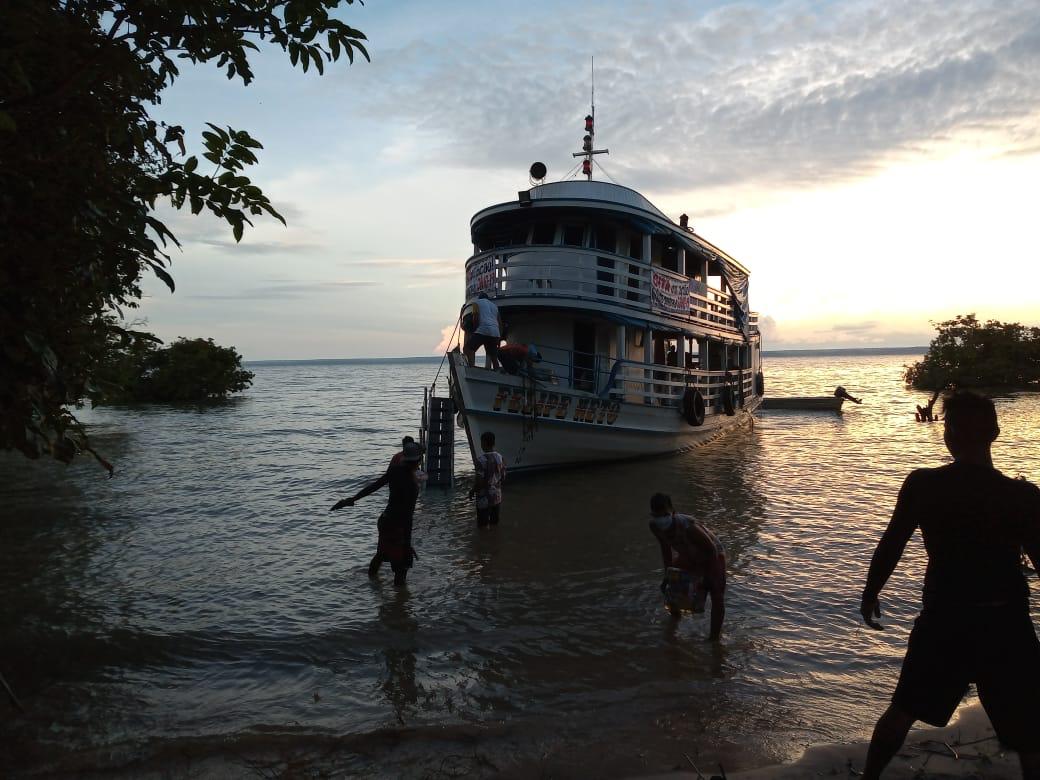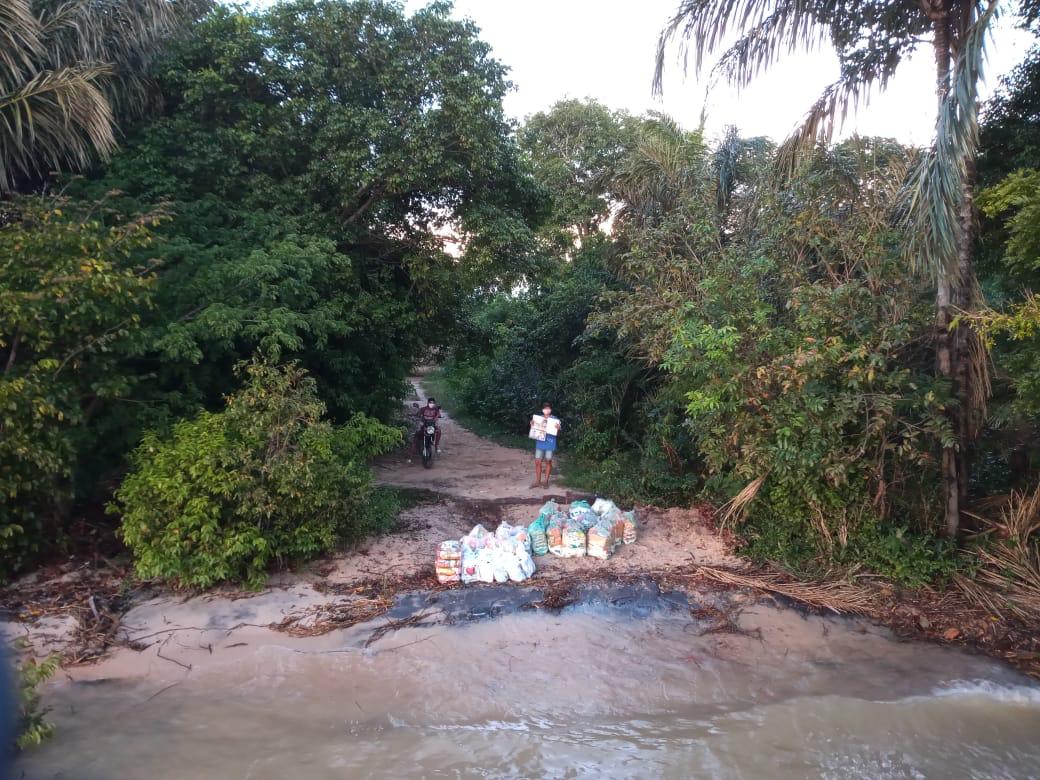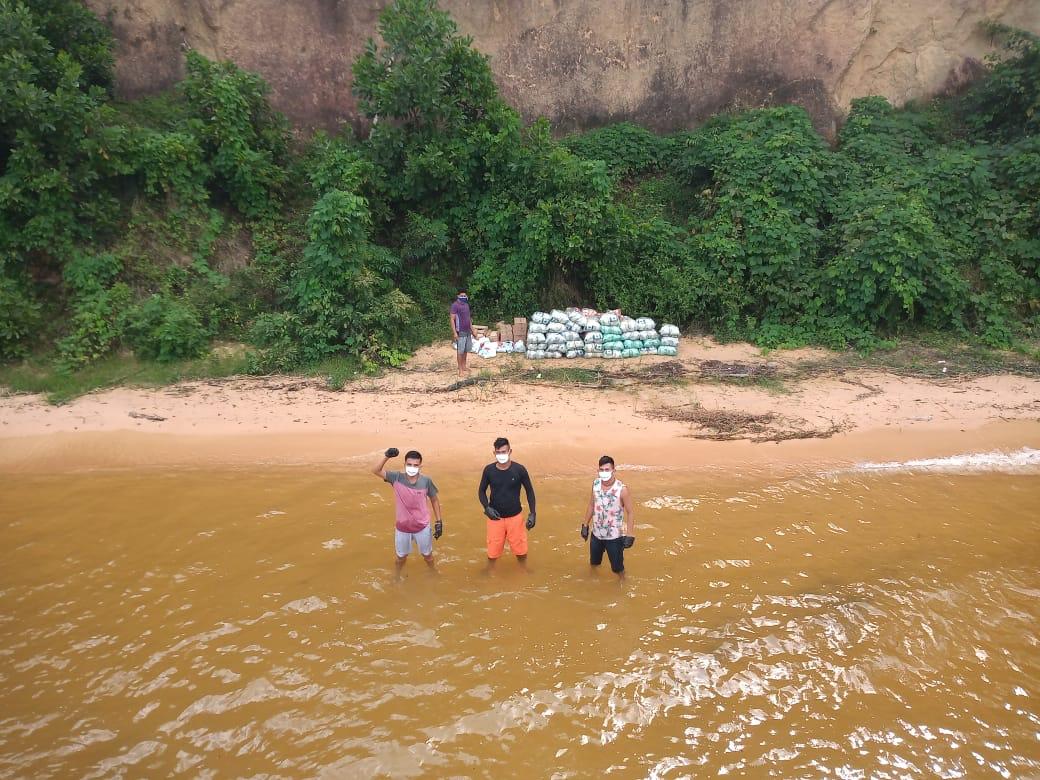This is a very challenging time for many of us. Sadly, remote communities like those living in the Amazon are at an even greater risk.
In short;
WHO – Our Amazon-based and indigenous partner Conselho Indígena Tapajós e Arapiuns (CITA) – ” We are the guardians of the Tapajós, 13 indigenous peoples across 70 villages that are fighting on the front lines to preserve the Amazon, a sacred territory where our ancestors rest.”
WHY – They now need our urgent help to combat the spread of Covid-19 which could have a devastating effect on these communities due to lack of healthcare infrastructure and governmental support.
HOW – The core focus to avoid families and communities being contaminated by coming to town to buy food / essentials. Our partner objective is to distribute 10 tons of food through 1,500 basic food baskets.
WHAT – Sinchi has already provided funding for boat transport and fuel to 51 villages in the Lower Tapajos region and the first 100+ food baskets which includes key essentials such as rice, sugar,carioca, pasta ,soy, detergent and more.
Are you in a position to help us safeguard the life and health of the native peoples and villages in the Amazon. For the cost of just 20 euros, you can provide a food basket which can help a whole family in this extremely delicate time (Note – 100% of your donation will reach the communities)
Donate– Click Here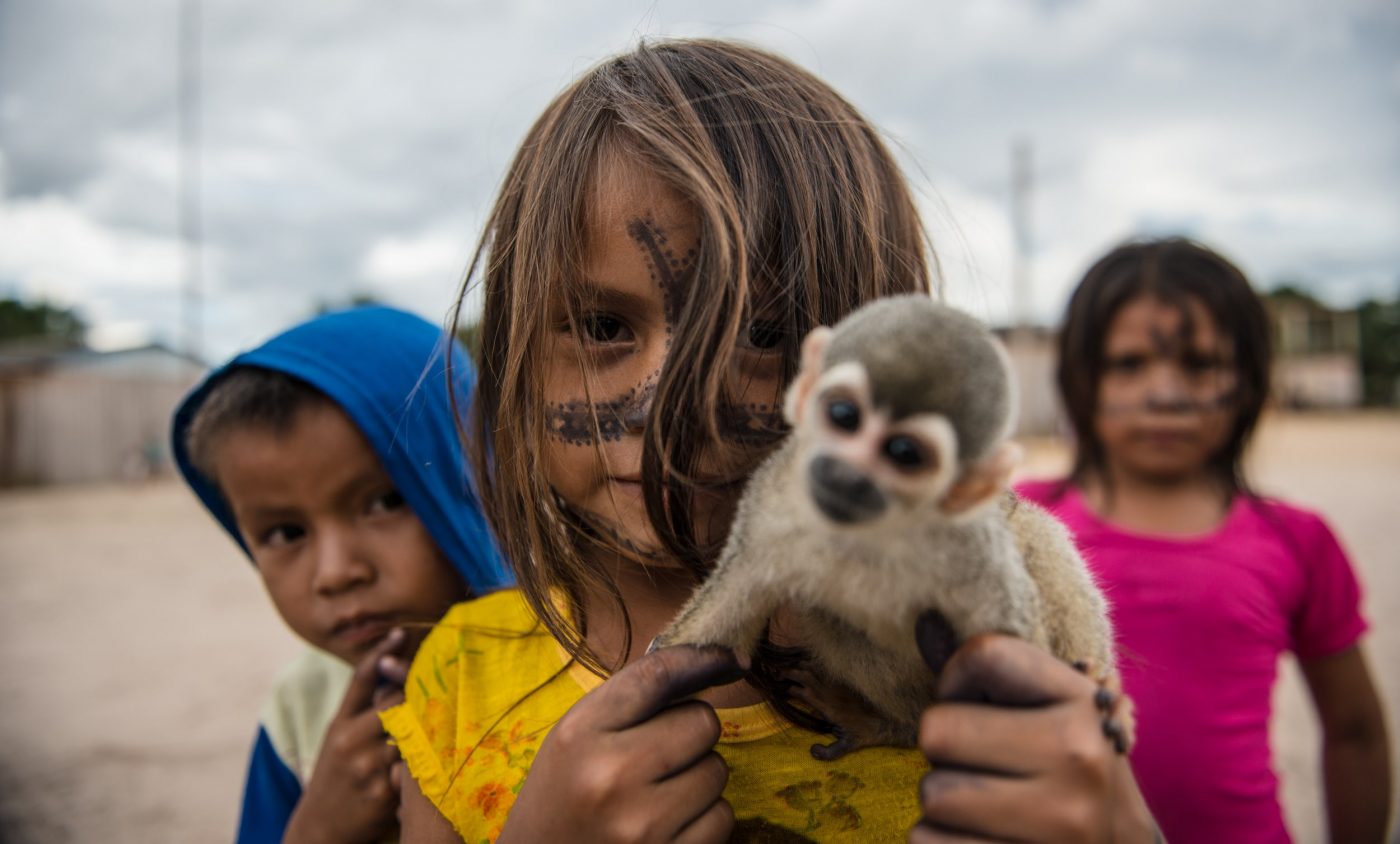
A message from CITA:
“We are very concerned about the lack of responsibility from our government, minimizing the coronavirus pandemic as a flu or a negligible disease. But we know how serious and worrying it has been to treat people with COVID-19, as well as to provide assistance to families that are taking social isolation seriously amid financial, structural and family difficulties.
We indigenous peoples in Brazil are a nation of approximately one million. Since we have many fragilities in the country’s health system and the geography of the villages is very complex when it comes to distances to provide relief and other types of aid. If the pandemic arrives at high speed in our villages / communities, we might be wiped out consequentially. Therefore, care must be redoubled!
Since the beginning of the pandemic in Brazil, CITA has followed the guidelines of the World Health Organization-WHO and the Ministry of Health of Brazil, which until now have been considered as serious and reference entities with sanitary, hospital and favorable measures of isolation and preventive care against COVID-19. It is worth mentioning that the first death of an indigenous person by COVID-19 was in the Alter do Chão village, Borari people, here in our region on March 19, 2020 when an elderly woman passed away.
We have demanded from the Public Ministry, more consistent measures to pressure government agencies to carry out a security plan for indigenous people in this scenario against the pandemic:
To demonstrate the severity of the issue. We have a case that died and more than 30 cases of notifications with suspected COVID-19 in indigenous people here and in our region. In the neighbouring state, Amazonas (in the city of Manaus) the public health system collapsed, we have over 100 deaths per day, and we fear that Brazil will be the new epicentre of the pandemic … All of these issues led us to meet with several local authorities at the Public Ministry, last week, in order to take more serious measures with the indigenous peoples here. We have intense and worrying days to face … The authorities and health experts estimate that the peak of the disease in Brazil will be around May 15, which makes us stay alert and plan better to guide our populations. We seek unity between national and international organizations to join efforts and keep people in the villages and avoid community contagion.”
Actions undertaken by CITA:
· In addition to canceling all of our activities that require face-to-face relationships, we are in constant telephone conversation with several indigenous leaders, providing guidance to keep their people in the villages without necessarily having to come to the city;
· We have dialogued with the Special Secretariat for Indigenous Health-SESAI, in order to take measures to fight the epidemic, carrying out the flu vaccine and providing medical assistance in the villages, following all the care that our populations need to have;
· We are seeing the possibility of FUNAI obtaining masks and rapid tests for SESAI to carry out procedures for possible detection of COVID cases in indigenous people;
· We have been talking to the National Foundation of Indio-FUNAI, with a view to obtaining food baskets to be sent to the more than 3,000 indigenous families in our region, totaling more than 6,000 indigenous people;
· We are talking to the Federal University of Western Pará, in order to help indigenous students with financial grants and daily food for these indigenous people to avoid returning to their villages during this pandemic period, thus avoiding the risks of exposure and contagion;
· We will talk with the mayors and the governor, to help with food in indigenous schools, without interruption during the pandemic;
· And this week, we started to seek help, mainly in food so that all the indigenous people who are in the villages avoid going to the cities to shop and expose themselves to contagion.
We are doing our best and asking for help to overcome this pandemic together, being in solidarity with the causes and needs of those who need it most in these times that makes it necessary to safeguard the life and health of our native peoples and villages, our region here in the Amazon.“
Update: First 470 food baskets have been delivered to 24 Tupinamba and Kumaruara villages in the weekend of june 6/7. As you can see it’s not a simple endeavor. All of these villages are remote, which means it’s challenging to get to them and part of the budget needs to go to transport on boats. We have a lot of admiration for the people on the ground who stand in solidarity. In the below photos you get an impression of how the logistics is functioning so far.
